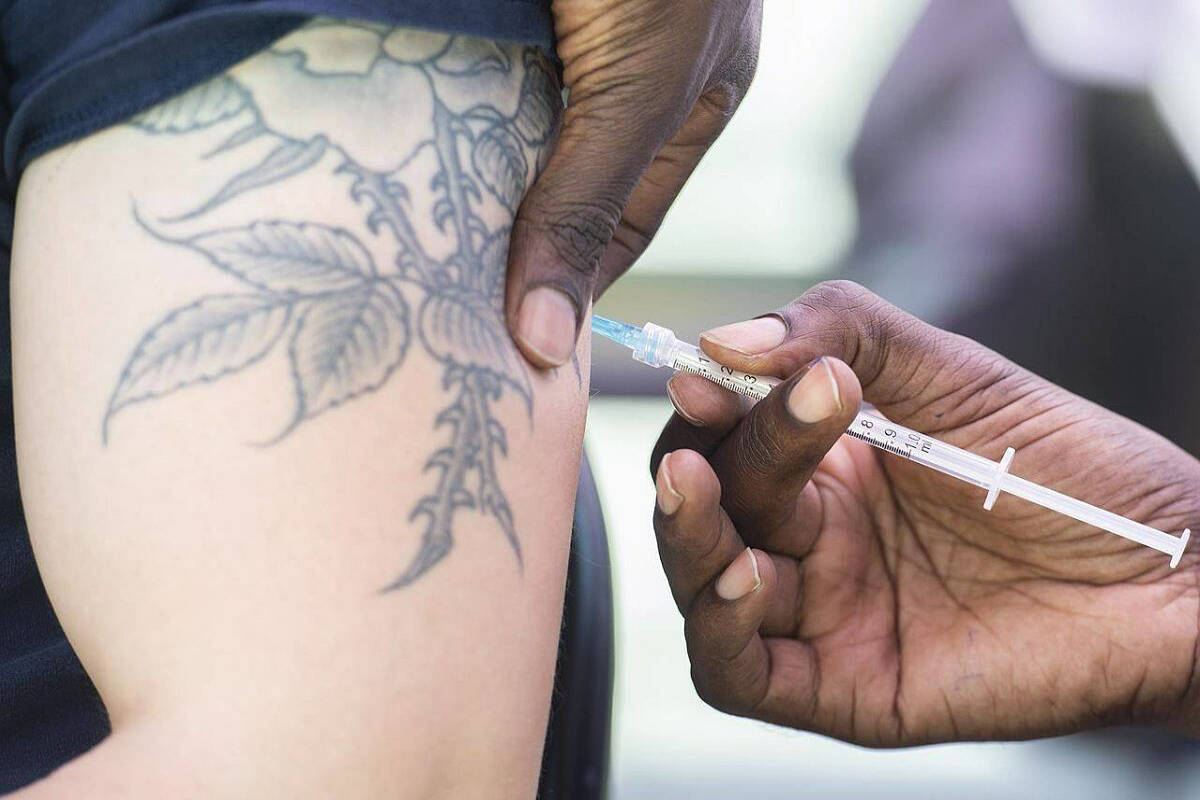There have been 81 confirmed cases of monkeypox found in B.C., however, infection concern remains low, according to a report from the BC Centre for Disease Control.
B.C. health authorities have reported 69 cases in Vancouver Coastal Health, and six each in Island Health and Fraser Health.
The World Health Organization declared the monkeypox outbreak a ‘public health emergency of international concern’ on July 21 as cases continue to be reported globally.
WHO’s director general said, in a press conference on July 23, there are now more than 16,000 reported cases from 75 countries and territories and five deaths known in Brazil, Spain and India. The current assessment is the risk of monkeypox is moderate globally, except in the European region where risk is high due to higher case count.
Twenty-eight European Union/European Economic Area countries have reported over 13,000 cases according to the European Centre for Disease Prevention and Control on Aug 4.
Dr. Horacio Bach, clinical assistant professor, division of infectious diseases at UBC, said statistics are changing rapidly as relatively little is currently known about the disease.
Because monkeypox has similarities to smallpox, a strand of this vaccine is being used to treat and eradicate the disease in B.C.
While anyone can become infected with the disease, more than 90 per cent of current cases have been found in men who have had sexual contact with other men and at this time there is no evidence as to why it is spreading more within this group, Bach said.
READ MORE: No monkeypox vaccine appointments available on Vancouver Island
Currently, only 2SLGTBQ+ people are eligible for a smallpox vaccine to treat monkeypox due to this group’s higher risk of illness and lack of vaccine accessibility in the province, due to low case counts.
Bach stressed the importance of using information and tools for people of close contact with a positive case and for members of the 2SLGTBQ+ community to protect themselves in case of infection risk.
Bach emphasized it is still early in the tracking of the disease and it is crucial not to stigmatize its transmission.
He told Black Press Media he does not expect a huge spike in monkeypox cases.
Most people over the age of 50 to 55 are likely protected, Bach said, because they may have received the smallpox vaccine when the disease was highly transmissible years ago. People in this age group may experience mild to no symptoms if they have had a smallpox vaccine. The last known cases of smallpox were recorded in 1977.
Younger people or unvaccinated people are more at risk to develop monkeypox symptoms.
Another oral medication, tecovirimat, was developed against smallpox by the FDA and approved last year but is only available in the U.S., Bach said, adding it may be employed in other countries if emergency use is needed.
According to the B.C. CDC, monkeypox is mostly spread through physical skin to skin contact with sores or fluid filled blisters. It can also be transmitted through items like bedding or towels that have monkeypox virus or respiratory droplets such as coughs and sneezes during close contact with a person who has monkeypox.
It is not known to be a sexually transmitted infection, like syphilis or HIV.
Symptoms
In the first stage, symptoms can include, fever, chills, headache, swollen lymph nodes, back pain, muscle pain, fatigue/exhaustion, or other less common symptoms of nausea, cough, sore throat, vomiting and diarrhea.
The second stage usually starts one to five days after the first stage and people may experience a rash (sores/blisters) developing which may last between two to three weeks according to the B.C. CDC.
Sores or blisters are most commonly seen on the hands, feet, arms, legs, mouth and or genitals. The rash change in appearance over time but will eventually form a scab and fall off.
Protection
To avoid contracting the disease, isolating from someone with monkeypox as well as avoiding areas they have touched is important to reduce the risk of contraction.
Blisters are full of virus that can be spread through home areas, Bach explained.
Tips he shared include wearing a three-ply or N95 mask in public spaces and especially when living with someone who contracted or may have contracted monkeypox. Cleaning surfaces with disinfectants and washing clothes, towels and not sharing items will also reduce risk, he said.
“Isolate if you are sick until symptoms are completely gone. It may take up to three weeks.”

